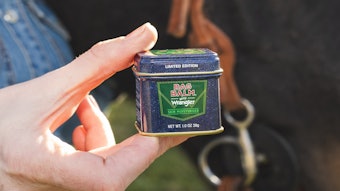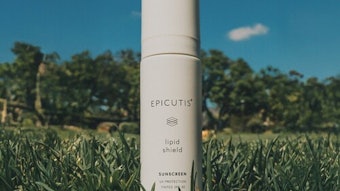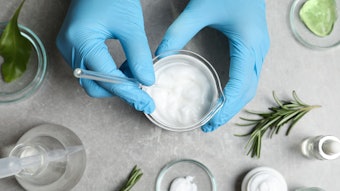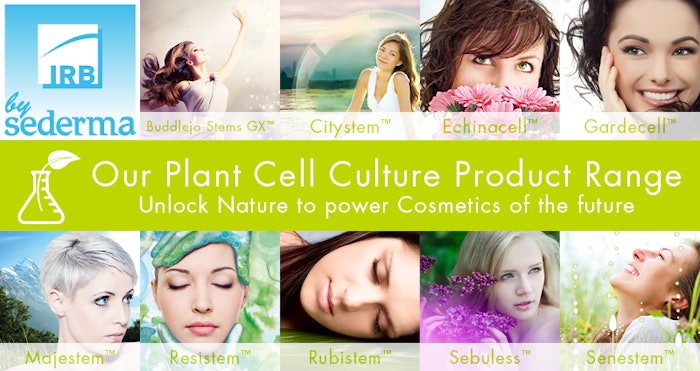
Skin stem cells, plant stem cells, plant cell culture (PCC) … while reading on these topics, it can rapidly become confusing ... leaps are easy and frequent.
Let’s have a look at how plant stem cells, through the PCC technology, can be a successful approach combining sustainability and innovation to produce cosmetics of the future.
Synthesis power of plant stem cells
Vegetal stem cells are undifferentiated cells characterized by the ability to renew themselves through mitotic cell division and to differentiate into diverse cell types. They also have the ability to synthesize all the phytomolecules present in the plant.
A plant, as an immobile organism, develops a collection of defense measures against predators and harmful environment, some based on distinctive molecules. Using this property, it is possible to force a plant, and more precisely stem cells, to synthesize a specific metabolite (called secondary metabolite as it is not essential to plant life) by mimicking a stress. Plant cell culture exploits the synthesis power of plant stem cells and offers an inexhaustible source of natural metabolites of interest with an optimized ratio efficacy/sustainability.
Plant cell culture principle
Once the plant samples have been selected and decontaminated, they are cultivated in vitro to create a pool of sterile and reproducible plant material. These plants are then injured and cultured on optimized solid medium to induce the dedifferentiation into stem cells and the formation of callus (heaps of undifferentiated cells) before being transferred in a liquid medium for amplification. Protocols are developed to optimize these cell suspensions and to mimic environmental stress conditions in order to produce secondary metabolites of interest, from flask scale to bioreactor. This process—called elicitation—is crucial. This know-how developed by Sederma makes the difference as it is not just about increasing the quantity of cells, but really about making these cells produce specific molecules of interest.
Plant stem cells, via this biotechnological process of plant cell culture, allow the infinite production of metabolites of interest with numerous advantages for sustainability, safety, quality and sourcing. Sustainability first, as there is no more over exploitation of land, widespread use of solvents and destruction of the biosphere. Safety and quality, as it allows the production of a high quantity of phytochemicals without using fertilizers, pesticides or GMOs. And finally, sourcing as the availability is unlimited, independently of crop, seasonality or supplier issues.
Overproduction of selected molecules
As a company involved in the research of innovative active ingredients with an even better sustainable approach, Sederma has naturally focused on the development of plant cell culture bioprocesses, especially after the acquisition of IRB by Croda. Under the brand IRB by Sederma, it is a wide range of active ingredients issued from PCC and with a proven efficacy that is now available for your product development:
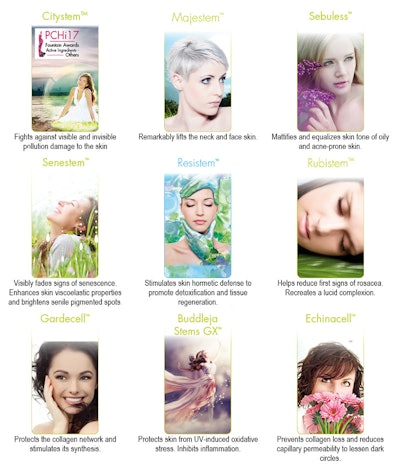
To know more about these products, please click here.
All these products are conform to the COSMOS Natural and Organic Cosmetics Standards except Resistem™, Gardecell™ and Echinacell™, but they could be.
Disclaimer:
The above paid-for content was produced by and posted on behalf of the Sponsor. Content provided is generated solely by the Sponsor or its affiliates, and it is the Sponsor’s responsibility for the accuracy, completeness and validity of all information included. Cosmetics & Toiletries takes steps to ensure that you will not confuse sponsored content with content produced by Cosmetics & Toiletries and governed by its editorial policy.




